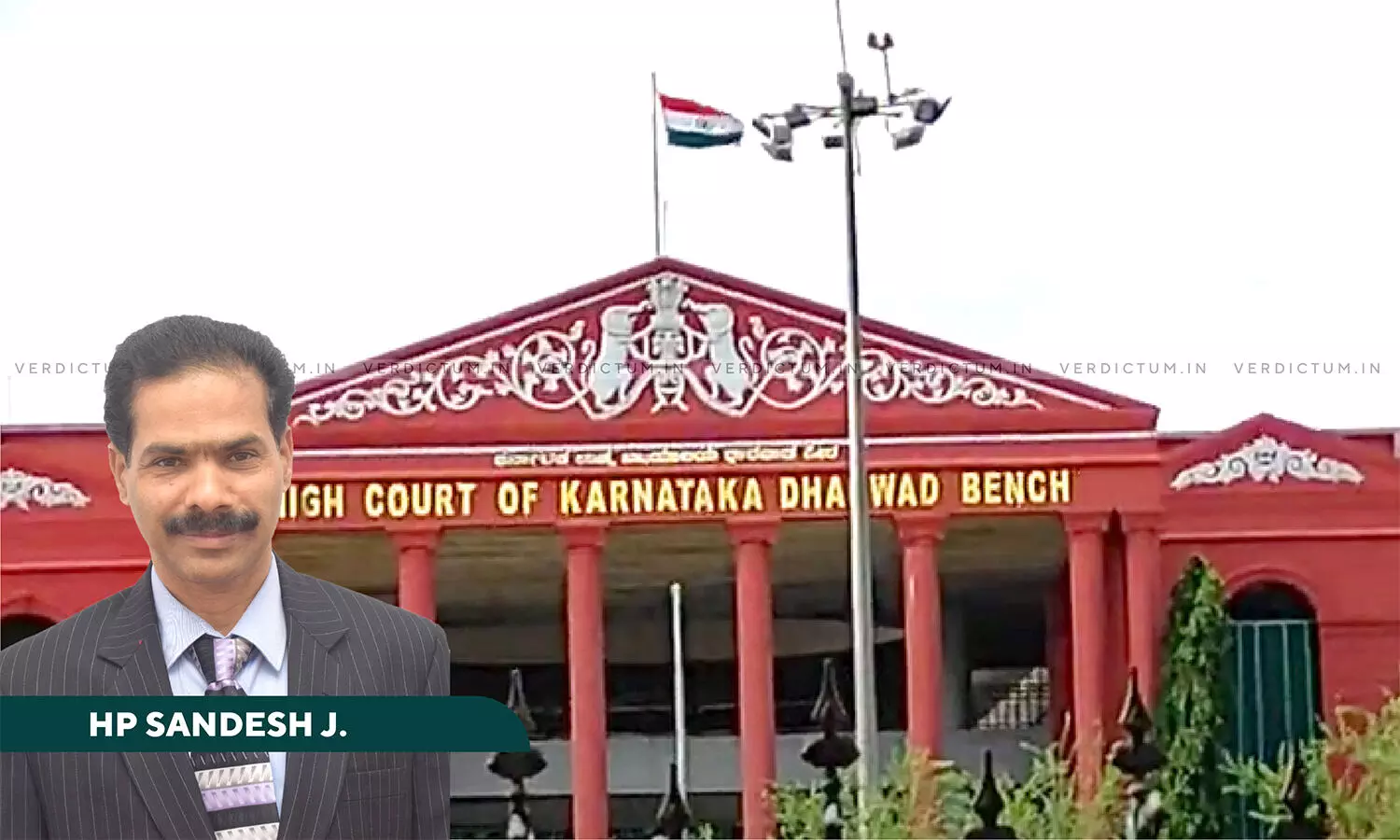
When Intending Party Responds To Invitation To Offer, Such Party Cannot Put Its Own Conditions & Seek Variance: Karnataka HC
 |
|The Karnataka High Court observed that, when the intending party responds to the invitation to offer namely, the tender notice, it is not permissible for such party to put forth its own conditions and seek variance in the conditions of tender.
The Dharwad Bench observed thus in a writ petition seeking to quash the paper publication issued by the Karnataka Institute of Medical Sciences.
A Single Bench of Justice H.P. Sandesh held, “It has to be noted that it is a fundamental law that when the tender inviting authority invites tender, it is only an invitation to offer. The invitation to offer may be accompanied by the terms and conditions which the Tender Inviting Authority would like to act upon against the prospective bidders. It is for the prospective bidder or the intending party who may submit its offer as to whether to accept the tender conditions or not. In cases of unwillingness or inability to go with the tender condition, the offer itself may not be submitted. When the intending party responds to the invitation to offer namely, the tender notice, it is not permissible for such party to put forth its own conditions and seek variance in the conditions of tender.”
The Bench said that it is the domain of the Tender Inviting Authority as to which conditions are to be attached with the tender notice and with which conditions it would accept the offers from the intending bidders.
Advocate Mallikarjunswamy B. Hiremath appeared for the petitioner while Advocate Aravind D. Kulkarni appeared for the respondent.
Facts of the Case -
The petitioner was a proprietary concern carrying on the business of laboratory equipments, consumables, and chemicals to the hospitals and diagnostic laboratories within the Karnataka State. It was also registered with the department of Drug Controller Government of Karnataka and so also registered under the GST (Goods and Services Tax). As per the petitioner’s case, the tenders across State were called for each equipment or department and there was never any issuance of a tender notification for multiple department equipments under one package. Thereafter, the respondent issued a paper publication inviting applications for supply and installation of medical laboratory equipments on cost per reportable test (CPRT) basis to Biochemistry, Pathology, and Microbiology at Central Laboratory at Karnataka Institute of Medical Sciences, Hubballi (KIMS).
The petitioner relied upon the paper publication and the respondent, for the first time called for the tender of all departments and imposed a condition that all the equipments mentioned in publication and notification shall be supplied by the single bidder who is authorized by the company so manufactured. It was contended that in list of the equipments, the item Nos. 3 and 4 are manufactured by only two companies i.e., Bio-Merieux and Becton Dickinsons in the entire world and only two persons have the dealership of these two companies one amongst it is the entire State of Karnataka i.e., Maxim Bio Medical. The main contention of the petitioner was that, imposition of the aforesaid condition was only to ensure that the said firm gets the impugned tender as others are not authorized distributors of equipments mentioned as item Nos.3 and 4. Hence, the petitioner approached the High Court.
The High Court after hearing the contentions of the counsel, noted, “When any intending bidder puts forward its own term in disagreement with the term or condition in the tender, it will amount to conditional offer which is not permissible. It is also important to note that it becomes a counter offer when the offerer comes out with his own offer or with different and varied conditions. The same is not permissible for the intending bidder to dictate its own term to the Tender Inviting Authority.”
The Court further said that, it has to be even discretional domain of the tender inviting authority that it could specify the condition and the Tender Inviting Authority is the best to judge as to what condition should be prescribed in the tender conditions for submission of bids by the tenderers, depending upon the exigencies of the tender work.
“The petitioner cannot enter into the domain of the tender inviting authority and impose the condition not to impose such a condition. It is important to note that it is fundamental law to act upon against the prospective bidders. It is for the prospective bidders to submit their offer as to whether to accept the tender conditions or not”, it added.
The Court observed that, in cases of unwillingness or inability to go with the tender condition, the offer itself may not be submitted and his inability to go with the tender condition cannot be a ground to interfere with the tender process.
“When the intending party responds to the invitation to offer namely, the tender notice, it is not permissible for such party to put forth its own conditions and seek variance in the conditions of tender as contended by the petitioner in the case on hand. It has to be taken note of that it is the domain of the Tender Inviting Authority as to which conditions are to be attached with the tender notice and with which conditions it would accept the offers from the intending bidders. It is only an offer and if the condition of the petitioner is accepted which amounts to conditional offer which is not permissible and the same is not permissible for the intending bidder to dictate its own term to the Tender Inviting Authority and the terms of the invitation to tender cannot be open to judicial scrutiny because the invitation to tender is in the realm of contract”, it also remarked.
Accordingly, the High Court dismissed the writ petition.
Cause Title- V.P. Enterprises v. Karnataka Institute of Medical Sciences (Neutral Citation: 2024:KHC-D:13718)